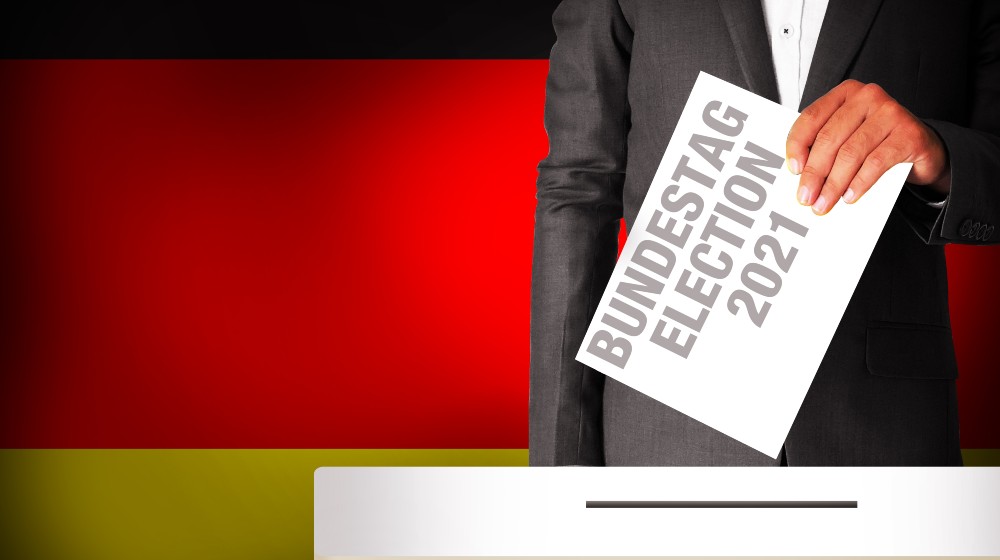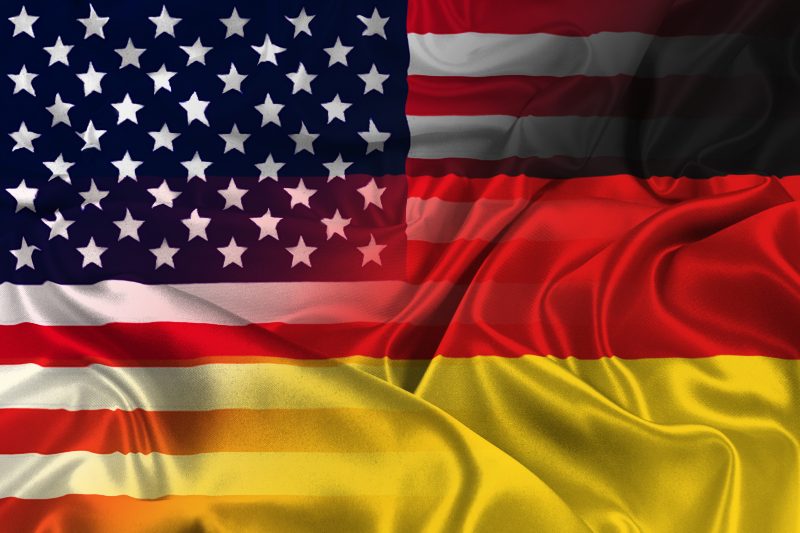Elections
What Can Americans Learn From German Election?

The recent German election had plenty of surprises: CDU received the worst result since WW2 and the Greens achieved their best result ever; AFD, who in 2017 is thought to be on the rise, lost part of its base.
While normally the chancellor is usually appointed by the winner, in this election two parties have hopes to be able to do so. However, this election has also lessons for non-Germans, especially for Americans. Here are four of them.
RELATED: Election of Ebrahim Raisi as President
What Can Americans Learn From German Election?

The Shorter, The Better
Even before this election, when Angela Merkel in 2018 announced that she decided to step down, it caused panic rippled through both Germany and around Europe: What will be the future of Germany? How is Europe going to move forward? How can France lead Europe without Merkel? What will be the fate of Brexit and relations with the UK?
The problem is that Merkel held power for 16 years and much of Europe’s dynamism formed around her. When she decided to step down, others do not know how to move on.
Therefore, the first lesson is that holding power for a long time, even if the holder is as competent as a person like Merkel, is harmful because in the time of departure it causes turmoil.
Normally, it is the system that dominates the person, but if someone holds power for a long time, then the balance shifts and the person dominates the system.
This is even more crucial for foreign policy because most foreign agreements are guaranteed by the people in power and when they step down, the fate of those agreements will be uncertain.
We all saw what happened to some of the US bilateral and multilateral agreements when Donald Trump took office. So, foreign negotiators will remain wary when they negotiate with the US and take this short-term tenure into account.
We all know that upon 78-year old US president’s decease, his 56-year old vice president will replace him easily and smoothly and without a big drama in the US foreign relations. But what happens when Vladimir Putin dies.
What will be the fate of Russia without him, or the fate of Turkey without Erdogan? By the same token, what will be the future of Germany or Europe without Merkel?
Climate Change Is Not Like the Earthquake
Another surprise sprang from the Greens and the fact that how much Germans are sensitive to climate change, which is shown in Green’s 15 percent result.
Even a few months ago, they were ahead of major parties and claimed that they wanted to appoint the next chancellor while normally the major parties do so.
This result will undoubtedly reverberate around Europe, as some observers now predict that the Greens will have a surprising result in the French election next April. What boggles the mind is the fact that they planned to raise energy prices.
This shows how much voters are enlightened about climate change they are ready to pay the price. Analysts believe that the spring flood in parts of Germany that killed 180 people contributed to his result which means that the voters are aware of the fact that such happenings are preventable by adopting the right policies.
The importance of such awareness can be better realized if one compares it with the magnitude of the Trump base in the US. They think that climate change is similar to an earthquake and the government is only responsible for mitigating its consequences, as its causes are out of their control, just like the earthquake which is not man-made.
Eat Little and Eat Long
After the election results were announced, except for radical lefts and radical rights, no one felt to be beaten. Even De Linke could have entered into a coalition with SPD if they obtained a little more votes.
Although CDU received its worst result since WW2, it still has the chance to form a government. On the election night, when the first results were announced, CDU supporters were dejected, but when later it announced that SPD obtained not much higher than them, they started dancing and drinking.
Now both Olaf Sholz from SPD and Armin Laschet from CDU has hopes to be the next chancellor. They started negotiations with other parties based on their voting result.
This situation is entirely different from the US elections where the winner seizes power for four years and the loser loses everything, even if it obtained 46 percent of votes like what Republicans did last year.
Therefore, one should expect that the loser suffers a major emotional trauma that is almost insurmountable in highly polarized situations. The Capitol riot last January in the US was an example of this phenomenon.
But in Germany, most parties have hopes that they can at least put some of their plans on the agenda for the next government.
This is an example of the proverb “Eat little and eat long” which means that instead of winner takes all and losers lose all, they can implement some of their policies within every parliamentary period.
This shows that in highly polarized societies, parliamentary democracy and the idea of coalition governments work better than presidential democracy.
Criticism From Inside Acts as a Buffer Against Extremism
The last lesson that can be learned from this election is that unlike Hungry, Austria, or Italy where far-right groups managed to rise to power, in Germany they were not able to do so, because two smaller centrist parties, namely the Greens and FDP, managed to take the fallen votes of the two major centrist parties so that these votes were not added to the two extremist parties.
Therefore, while two major centrist parties lost part of their base, at the same time, two radical parties’ votes fell too. When factions inside the center begin to lambast other factions, if the later factions fail, the base shifts to the former, and as a result, the society does not backslide into radicalism.
This was a significant victory for centrists in Germany and a great lesson for liberals and moderates in the US.
*Issa Adeli, Political Researcher, Center of International Cooperation and Strategic Studies, Ministry of ICT.
You Might Also Like:
- Independent Voters Are Dumping Joe Biden In Large Numbers
- College Students Prefer Dropping Out Rather Than Getting Vaccine
- The Argument: Winning Elections
Keep up to date with the breaking news by following us on Facebook and Instagram.
Article Source: NewsEdge












